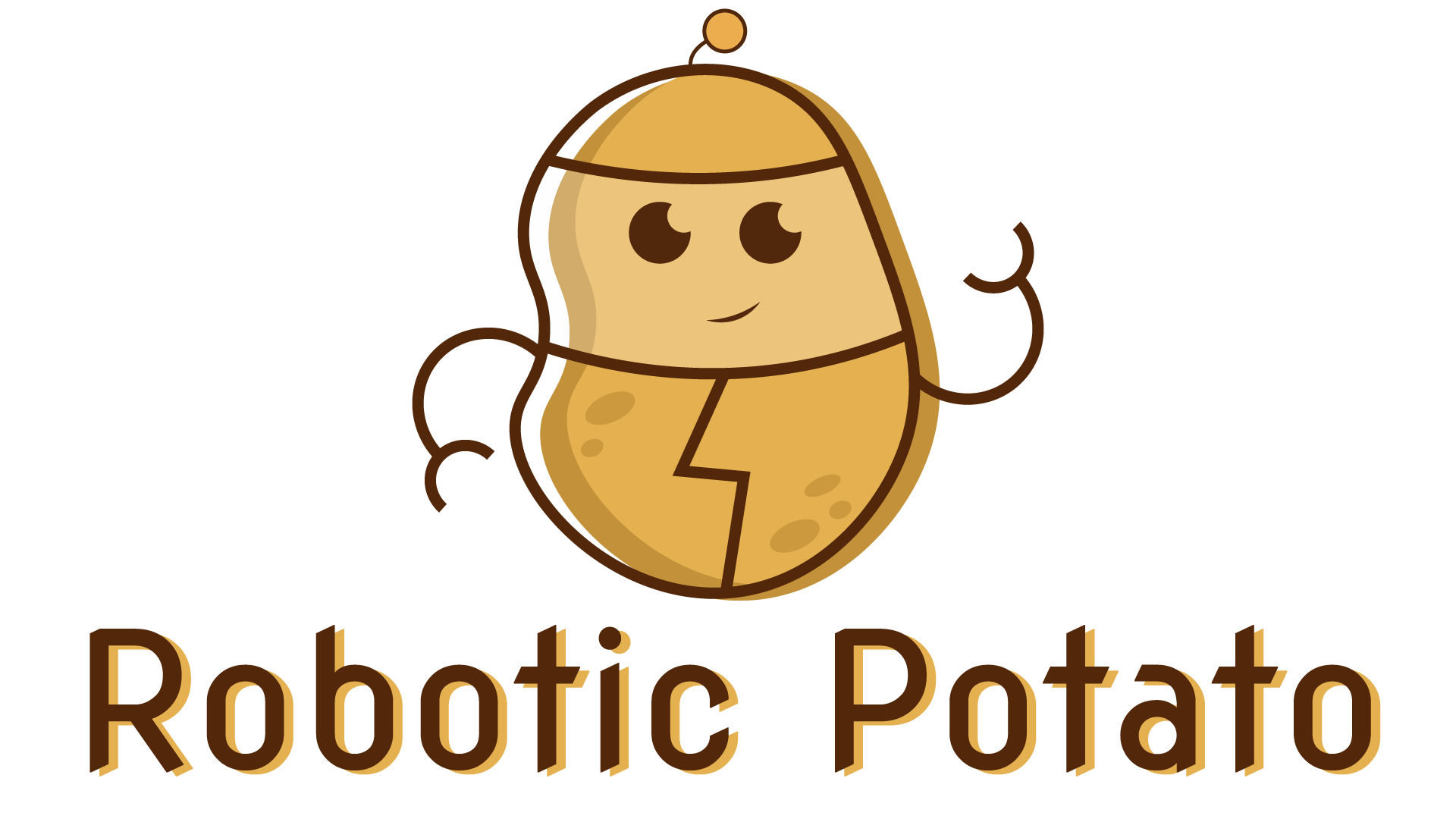As technology continues to advance at an unprecedented rate, businesses and marketers alike are turning to artificial intelligence tools to gain a competitive edge in the ever-evolving digital landscape. With the rise of AI-powered solutions, it’s becoming increasingly clear that those who harness these technologies will be the ones driving innovation and success in their respective industries. But with so many options available, it can be overwhelming to determine which best AI tools are worth investing in.

Best AI Tool
We’ve reviewed numerous AI tools and software in 2024, and we’re excited to share our findings with you.
- Robotic Potato: As a leading technology and digital tool review site, we specialize in AI-powered applications and tools that enhance productivity, content creation, and user engagement.
- AI Writer Tools: We’ve evaluated several AI writer tools, including ProWritingAid, Hemingway Editor, and Ginger. These tools offer advanced features such as grammar correction, sentence rephrasing, and content suggestions.
- Chatbot Tools: Our team has also explored various chatbot platforms, including Dialogflow, Facebook Messenger Platform, and Tars. These tools enable businesses to create personalized conversational experiences for customers.
- Image Generation Tools: We’ve analyzed several image generation tools, including DALL-E, Midjourney, and Stable Diffusion. These tools utilize AI algorithms to generate high-quality images from text prompts.
Top Recommendations
- ProWritingAid: This AI writer tool offers a comprehensive suite of features, including grammar correction, sentence rephrasing, and content suggestions. Its user-friendly interface makes it easy to integrate into your writing workflow.
- Dialogflow: This chatbot platform enables businesses to create personalized conversational experiences for customers. Its intuitive interface and robust feature set make it an excellent choice for businesses looking to implement AI-powered customer support.
- DALL-E: This image generation tool utilizes AI algorithms to generate high-quality images from text prompts. Its vast library of images and seamless integration with popular design tools make it an excellent choice for creatives.
Conclusion
In conclusion, the best AI tool depends on your specific needs and goals. Whether you’re looking to enhance productivity, create personalized conversational experiences, or generate high-quality images, there’s an AI tool out there for you. At Robotic Potato, we’re committed to helping you navigate the evolving landscape of artificial intelligence technology.
Top 5 Generative AI Tools
We’ve compiled a list of the top 5 generative AI tools that can revolutionize your workflow and take your creativity to the next level.
- 1. Midjourney
- 2. DALL-E
- 3. LLaMA
- 4. Stable Diffusion
- 5. Deep Dream Generator
Midjourney is a powerful AI tool that uses text-to-image synthesis to generate stunning visuals. With its intuitive interface and vast library of templates, you can create professional-grade images in minutes.
DALL-E is another popular AI tool that excels at generating realistic images from text prompts. Its advanced algorithms and vast training dataset make it an ideal choice for artists, designers, and marketers.
LLaMA is an open-source AI model developed by Meta AI that can generate human-like text based on input prompts. Its versatility and customizability make it a favorite among developers and researchers.
Stable Diffusion is a cutting-edge AI tool that uses diffusion-based models to generate high-quality images. Its ability to handle complex prompts and produce realistic outputs makes it a go-to choice for creatives.
The Deep Dream Generator is a unique AI tool that uses neural networks to transform images into surreal, dreamlike landscapes. Its creative possibilities and ease of use make it a favorite among artists and designers.
These five generative AI tools offer a wealth of creative possibilities and can help you streamline your workflow, boost productivity, and unlock new levels of innovation.

Is ChatGPT Still the Best AI?
As we continue to explore the rapidly evolving landscape of artificial intelligence, it’s essential to evaluate the performance of various AI models, including ChatGPT.
- ChatGPT’s Strengths:
- Exceptional conversational abilities
- Ability to understand and respond to complex queries
- Large knowledge base and ability to learn from interactions
- Competitors to Consider:
- Bing AI: Offers a robust set of features, including language translation and summarization capabilities
- Google Bard: Provides a conversational interface and can generate human-like responses
- Evaluating Performance:
- Accuracy: While ChatGPT excels in conversational tasks, its accuracy may vary depending on the complexity of the query
- Contextual Understanding: ChatGPT demonstrates exceptional contextual understanding, but may struggle with nuanced topics
- Scalability: As the demand for AI increases, scalability becomes a critical factor in evaluating AI performance
- Conclusion:
- Google DeepMind’s Gemini: A sophisticated multimodal system capable of processing and reasoning across diverse types of data, including text, audio, images, and video.
- Microsoft Azure Machine Learning: A cloud-based platform that enables developers to build, deploy, and manage machine learning models at scale.
- IBM Watson: A cognitive computing platform that uses natural language processing, machine learning, and expert systems to analyze and understand complex data.
- OpenAI’s GPT-3: A large language model that has been fine-tuned for a variety of tasks, including language translation, text summarization, and conversational dialogue.
- NVIDIA’s TensorRT: A high-performance deep learning inference engine that accelerates AI workloads on NVIDIA GPUs.
- Deep learning capabilities: Many of these AI programs utilize deep learning techniques, such as neural networks and convolutional neural networks, to analyze and learn from complex data.
- Multi-modal support: Some AI programs, like Google DeepMind’s Gemini, can process and reason across multiple types of data, including text, audio, images, and video.
- Cloud-based deployment: Platforms like Microsoft Azure Machine Learning and IBM Watson offer cloud-based deployment options, making it easier to scale and manage AI workloads.
- Large-scale training data: Models like OpenAI’s GPT-3 have been trained on massive datasets, enabling them to learn complex patterns and relationships in data.
- High-performance acceleration: NVIDIA’s TensorRT offers high-performance acceleration for deep learning workloads, making it ideal for applications requiring fast inference times.
- Google DeepMind’s Gemini vs. Microsoft Azure Machine Learning: While both platforms offer strong multi-modal support, Gemini’s ability to reason across diverse data types sets it apart.
- IBM Watson vs. OpenAI’s GPT-3: Watson’s expertise in natural language processing and machine learning makes it a strong contender, but GPT-3’s large-scale training data gives it an edge in certain tasks.
- NVIDIA’s TensorRT vs. Other Accelerators: TensorRT’s high-performance acceleration makes it a top choice for deep learning workloads, but other accelerators, like Google’s TPUs, may offer competitive performance.
- Google DeepMind: Developed by Alphabet Inc., Google DeepMind is a leading AI research organization known for its AlphaGo program, which defeated a human world champion in Go. Their AI systems have achieved state-of-the-art results in various tasks, including playing complex games and solving complex problems.
- Microsoft Azure Machine Learning: Microsoft’s cloud-based machine learning platform offers a suite of tools and services for building, training, and deploying AI models. Its capabilities include natural language processing, computer vision, and predictive analytics.
- IBM Watson: IBM’s AI platform is designed to analyze and understand large amounts of data, providing insights and recommendations for businesses and organizations. Its capabilities include natural language processing, machine learning, and cognitive computing.
- Natural Language Processing (NLP): Enables computers to understand, interpret, and generate human language.
- Machine Learning: Allows AI systems to learn from data and improve their performance over time.
- Computer Vision: Enables AI systems to interpret and understand visual data from images and videos.
- Predictive Analytics: Uses statistical models and machine learning algorithms to forecast future events and outcomes.
-
Claude AI Features
- Claude AI excels in its ability to engage in long-form conversations, making it ideal for complex discussions and debates.
- Its conversational style is often described as more human-like, allowing users to feel more comfortable and connected during interactions.
- Claude AI has demonstrated impressive capabilities in generating creative content, such as stories and poetry.
-
ChatGPT Features
- ChatGPT boasts a broader range of features and integrations, making it a versatile tool for various tasks and applications.
- Its ability to understand and respond to a wider variety of prompts and questions sets it apart from other AI assistants.
- ChatGPT has shown remarkable potential in assisting with content creation, such as writing articles and generating ideas.
-
Comparison and Conclusion
- The choice between Claude AI and ChatGPT ultimately depends on the specific needs and preferences of the user.
- If you require a conversational partner for complex discussions and creative content generation, Claude AI may be the better choice.
- However, if you need a versatile tool with a broad range of features and integrations, ChatGPT could be the more suitable option.
While ChatGPT remains a leading AI model, its performance can be rivaled by other models, particularly in specific contexts or tasks. To determine which AI is “best,” consider the unique strengths and weaknesses of each model and evaluate their performance based on your specific needs and requirements.
At Robotic Potato, we strive to provide the most accurate and informative content possible, leveraging the latest advancements in AI technology to deliver high-quality insights and analysis.
We recommend exploring the capabilities of various AI models, including ChatGPT, Bing AI, and Google Bard, to determine which one best suits your needs. By doing so, you’ll be able to harness the full potential of these powerful tools and stay ahead in the rapidly evolving world of artificial intelligence.
For more information on AI-powered applications and tools, visit our AI Tools page or explore our Reviews section for in-depth evaluations of the latest AI-driven products.

The Most Powerful AI Program
We’ve analyzed various AI systems and identified several contenders for the title of most powerful AI program.
Key Features and Capabilities
Competitor Analysis
We’ve compared these AI programs to identify strengths and weaknesses, as well as opportunities for differentiation.
Conclusion
In conclusion, the most powerful AI program depends on the specific application and requirements. Each of these contenders offers unique strengths and capabilities, making them suitable for different use cases.
As we continue to advance in the field of artificial intelligence, it’s essential to stay informed about the latest developments and innovations.
For more information on AI and its applications, visit our AI resource page.
Who is the No 1 AI in the world?
The title of the number one AI in the world can be subjective depending on various factors such as the criteria used to measure AI capabilities, the type of AI being referred to, and personal opinions.
While these AI systems are among the most advanced and widely recognized, determining a single “number one” AI is challenging due to the diversity of AI applications and the ongoing evolution of AI technologies.
Key Features and Capabilities:
Conclusion:
Determining the number one AI in the world is a complex task due to the diverse range of AI applications and the continuous advancement of AI technologies. However, Google DeepMind, Microsoft Azure Machine Learning, and IBM Watson are among the most prominent and influential AI systems currently available.

Is Claude AI Better Than ChatGPT?
In the ongoing debate between Claude AI and ChatGPT, determining which one is superior can be challenging due to their unique strengths and weaknesses.
We recommend exploring both options to determine which one aligns best with your goals and requirements.
For a deeper dive into the world of AI-powered applications and tools, visit our website at Robotic Potato to discover the latest advancements and insights.

0 Comments